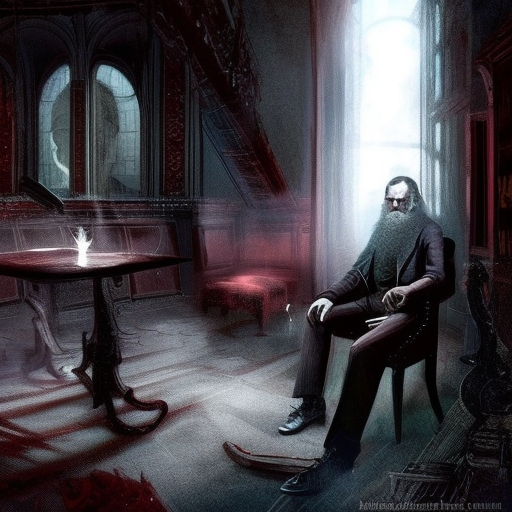One-line Summary:
A young man with a pure heart navigates the complexities of society, love, and morality in Fyodor Dostoevsky’s novel, The Idiot.
Prince Myshkin, an innocent and compassionate man
Introduction:
Fyodor Dostoevsky’s novel, The Idiot, tells the story of Prince Myshkin, a young man who returns to Russia after spending several years in a Swiss sanatorium. Despite suffering from epilepsy, Myshkin possesses a pure heart and an unwavering sense of compassion. As he navigates the complexities of Russian society, he becomes entangled in a web of love, betrayal, and moral dilemmas. Through the character of Myshkin, Dostoevsky explores themes of innocence, morality, and the corrupting influence of society.
The Innocence of Prince Myshkin:
Prince Myshkin is portrayed as a man of extraordinary innocence and purity. His childlike naivety and lack of guile make him an outsider in the corrupt and scheming world of Russian high society. Myshkin’s innocence is both his greatest strength and his tragic flaw. While he is able to see the goodness in others and offer them unconditional love and forgiveness, he is also vulnerable to manipulation and exploitation.
The Complexity of Love:
Love is a central theme in The Idiot, and Dostoevsky explores its various forms and manifestations. Myshkin finds himself torn between two women: Nastasya Filippovna, a beautiful and tormented woman with a dark past, and Aglaya Yepanchin, a young and idealistic girl from a wealthy family. Nastasya represents the allure of passion and self-destruction, while Aglaya embodies innocence and purity. Myshkin’s struggle to choose between these two women reflects the broader question of whether love can truly conquer all.
The Moral Dilemmas of Society:
Dostoevsky uses The Idiot to critique the moral decay and hypocrisy of Russian society. The characters in the novel are driven by their own selfish desires and are willing to betray and manipulate others to achieve their goals. Myshkin, with his unwavering moral compass, serves as a stark contrast to the corrupt society around him. However, his attempts to bring about moral reform are met with resistance and ultimately lead to his downfall.
Key Takeaways:
- Prince Myshkin’s innocence and purity make him both endearing and vulnerable in a corrupt society.
- The novel explores the complexities of love and the struggle between passion and purity.
- Dostoevsky critiques the moral decay and hypocrisy of Russian society.
- The Idiot raises questions about the possibility of moral reform in a corrupt world.
“Beauty will save the world.”
– Fyodor Dostoevsky
In The Idiot, Fyodor Dostoevsky presents readers with a thought-provoking exploration of innocence, love, and morality. Through the character of Prince Myshkin, he challenges societal norms and exposes the moral decay and hypocrisy of Russian high society. The novel serves as a cautionary tale, reminding us of the importance of maintaining our moral compass in a world that often values power and self-interest over compassion and integrity. Ultimately, The Idiot leaves readers pondering the possibility of redemption and the transformative power of love and beauty.












